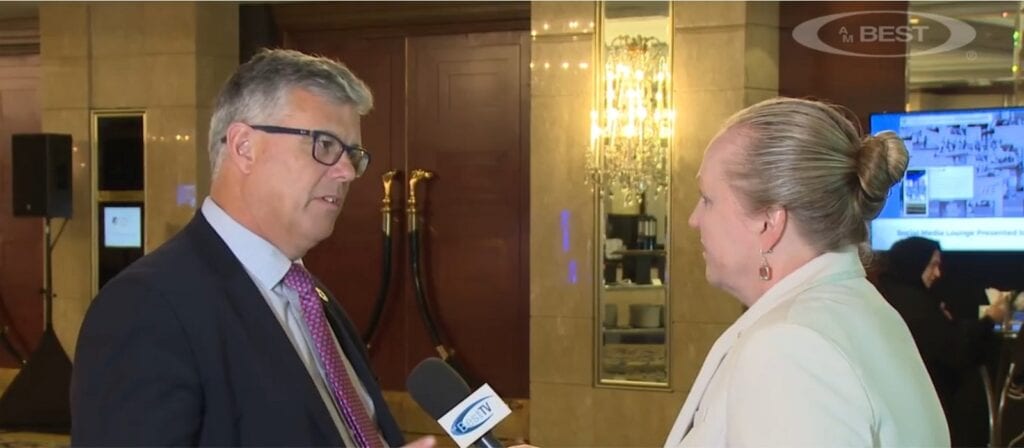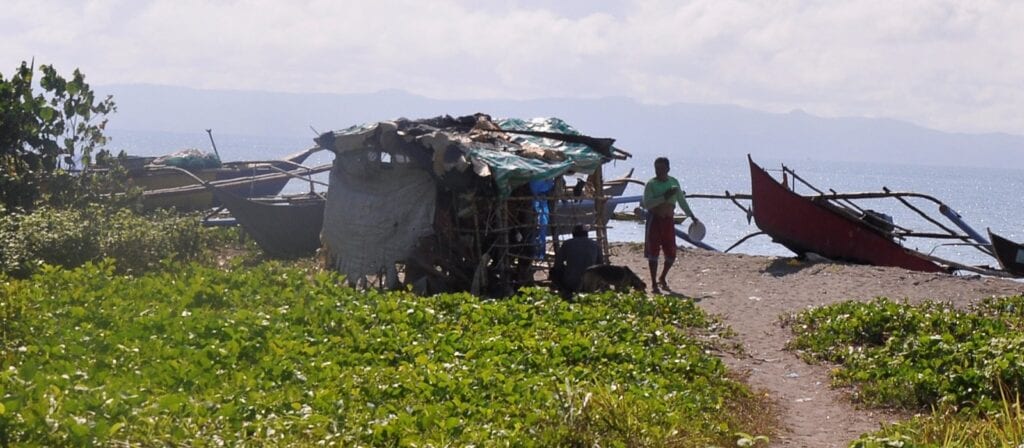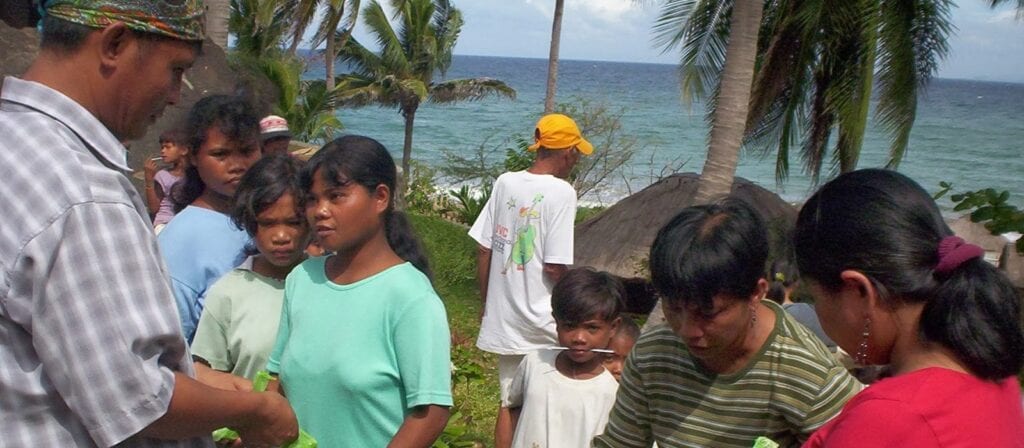Manchester, UK, Thursday 20 June 2019: A new study from the University of Cambridge Institute for Sustainability Leadership has, for the first time, analysed how mutual microinsurance, a community-owned model of insurance, contributes to the recovery of low-income households following a natural disaster. The report, looking at mutual microinsurance through the lens of the United Nations Sustainable Development Goals (SDGs), indicates greater resilience for those households covered by mutual microinsurance than those without.
In many developing and emerging economies, mutual insurers are not recognised legally, hampering their ability to function optimally and to support those most in need of their products. Despite the fact that the mutual insurance sector holds 27 per cent of the global insurance market and that the sector is the fastest growing part of the total market (Source: ICMIF Global Mutual Market Share 10), there has been very little independent research into the viability of mutual microinsurance as a business model and its value in improving the conditions of individuals, their families and communities.
The report, from the University of Cambridge Institute for Sustainability Leadership (CISL), Mutual microinsurance and the Sustainable Development Goals: An impact assessment after Typhoon Haiyan, assessed the operation of the world’s largest mutual microinsurance provider, CARD Mutual Benefit Association (MBA), which is based in The Philippines, where 500,000 members live in the region affected by the devastating Haiyan Typhoon of 2013.
It analysed the recovery outcomes of 160 households post-typhoon, including those that had mutual microinsurance, and those without. The study found that households covered by life insurance delivered by a mutual microinsurer recovered better after the disaster than those without.
Speaking about the launch of the report, Sabbir Patel, Senior Vice-President, Emerging Markets at the International Cooperative and Mutual Insurance Federation (ICMIF) said: “The CISL report demonstrates that mutual microinsurance has a unique role in delivering the SDGs; in addition to simply providing insurance, mutuals have led the way for centuries in taking a holistic, risk management approach driven by the people they were established to serve. The ICMIF 5-5-5 Mutual Microinsurance Strategy is one of the ways we are providing support to other mutual microinsurers to help replicate the commendable success achieved by CARD MBA in the Philippines.”
Adding his endorsement to the report, Philippe de Longueville, Member of the Executive Committee at Belgium cooperative insurer, P&V and Chair of ICMIF’s Development Committee, said, “We are proud to have supported this important work done by CISL and are grateful for the transparency and cooperation provided by CARD MBA in participating as the case study. The report confirms that mutual microinsurance plays a significant role in building resilience in low-income communities prior to and in the aftermath of natural disasters. We welcome further dialogue to explore ways of increasing the impact of such schemes and building similar inclusive enabling environments in other jurisdictions.”
ICMIF CEO Shaun Tarbuck said, “This report also reinforces ICMIF’s belief that legislative system should take an inclusive approach which will allow mutual insurance to flourish side by side with commercial insurers. The Philippines case study demonstrates how this can be achieved and how it would lead to an increase in the insurance sector’s impact on economic development, poverty reduction and disaster recovery for the underserved population.”
This report also reinforces ICMIF’s belief that legislative system should take an inclusive approach which will allow mutual insurance to flourish side by side commercial insurers. The Phillippines case study demonstrates how this can be achieved and lead to increase in the insurance sectors’ impact on economic development, poverty reduction and disaster recovery for the underserved population.
CISL’s Executive Director of Sustainability Economy, Jake Reynolds, said: “The need for adaptation and resilience in the face of climate change is urgent, as are the messages in this research. Until uncertainties surrounding the regulation of mutual microinsurance are addressed, the scope, scale and effectiveness of interventions by governments, donors and international institutions will continue to be hampered. It is time for insurers and policymakers to investigate this area further in order to understand how they can expedite delivery of the SDGs.”
In response to the findings, CISL makes three recommendations:
- Governments must work towards aligning policy on inclusive insurance – that aims to protect vulnerable or low-income populations in emerging markets – more closely with national and international SDG targets.
- Regulators must include access to effective mutual insurance for low-income communities as a distinct entity within inclusive insurance, adding it to the wider intervention options to increase climate resilience.
- The insurance sector (mutual and non-mutual) must deliver better for low-income populations, working with communities and regulators to understand and shape individual country needs.
Case study example
Typhoon Haiyan was one of the strongest tropical cyclones ever recorded with winds of nearly 200mph. Affecting the Philippines, the storm killed more than 6,000 people, made 1.9 million homeless and displaced 6 million.
Paquito Sabido from Barangay Salazar in Tacloban City took part in the study. In 2013, he was knocked unconscious in the typhoon. When he woke his wife and children were gone. After two days he found his children sheltering on the second floor of a building, but his wife had not survived. His wife’s mutual life insurance policy enabled Paquito to recover his business, and access further finance to rebuild their home.
Within the overall findings that household outcomes after the devastation of Typhoon Haiyan were positively affected by the presence of insurance, mutuality was also seen to have specific attributes. Members felt their wellbeing was prioritised through assistance programmes, loan moratoria, and financial advice post-typhoon. Well-established community networks checked on each other’s welfare, distributed emergency aid to members and made the validation and payment of claims more efficient in a very testing environment.
The provider, CARD Mutual Benefit Association (MBA) covers 20 million lives, with 35 per cent of those living below the poverty line. Mutual insurers represent 27 per cent of the global insurance industry and distinguish themselves by being a community-owned model and because it is owned by its members, it requires specific regulatory support to protect low-income vulnerable customers.
The report is launched Friday 21 June 2019 in a session entitled “Typhoon Haiyan 2013: Role of Insurance in Rebuilding Economies and Communities. What has been learned?” during the International Insurance Society (IIS) Global Forum in Singapore.
//ends
Notes to editors
A digital version of the report will be available on Friday June 21: www.cisl.cam.ac.uk/news. For more information and interviews with CISL contact [email protected] +44 7432 533 080.
For more information or to arrange interviews with ICMIF, please contact Alison Grant, Communications Manager, ICMIF [email protected] +44 161 952 5078
Key report findings
- For the first time, operational insurance functions and outcomes have been assigned to the delivery of SDGs targets and aligned with possible insurance related metrics and indicators. We documented that mutual microinsurance, as per CARD MBA, contributes to ten goals;
- The supportive legal and regulatory environment in the Philippines has been crucial for the development of the microinsurance sector over the past two decades.
- The success of CARD MBA mutual microinsurance is intertwined with CARD microfinance operations and community involvement in the following aspects: member ownership, trust building, product development, distribution networks, claims validation, governance, empowerment of women, financial risk management education and solidarity;
- The impact of mutual microinsurance on community recovery after Typhoon Haiyan illustrates the interdependence of insurance, credit and emergency aid.
The report was led by CISL Fellow Dr Ana Gonzalez-Pelaez, with the field survey undertaken by RIMANSI with support from the International Cooperative and Mutual Insurance Federation (ICMIF).
About the global mutual and cooperative insurance sector
- The mutual sector holds 26.7% of global insurance market share by premium.
- Premium income was USD 1.3 trillion in 2017
- In 2017 the sector’s assets were USD 8.9 trillion
- Employment in the sector accounts for more than 1.16 million jobs
- Over 922 million people are served as member/policyholders by mutual/cooperative insurers
About ICMIF (see www.icmif.org)
- With its global headquarters in the United Kingdom and regional offices in the USA and Japan, today ICMIF represents 197 values-based insurers in 66 countries with over USD 232 billion in premium income and USD 1.7 trillion in total assets held.
- ICMIF delivers unique networking opportunities, market and member intelligence and external relations services. It takes a strong lead in encouraging best practice amongst its member firms in key insurance issues, including; performance management, legal and governance, marketing, brand and reputation, reinsurance and social and environmental performance.
- ICMIF is active in the microinsurance sector and in particular the ICMIF 5-5-5 Mutual Microinsurance Strategy. The 5-5-5 Strategy is a five-year project based in five emerging market countries which aims to provide five million households with insurance cover for the first time to take them out of poverty and build resilience in poor communities.
- ICMIF is also involved in the Takaful sectors
- Follow ICMIF on Twitter at @ICMIF_Web
- Follow ICMIF on LinkedIn at: www.linkedin.com/company/icmif
About the University of Cambridge Institute for Sustainability Leadership
The University of Cambridge Institute for Sustainability Leadership (CISL) is a globally influential Institute developing leadership and solutions for a sustainable economy. Our Rewiring the Economy framework shows how the economy can be ‘rewired’, through focused collaboration between business, government and finance institutions, to deliver positive outcomes for people and environment in pursuit of the UN Sustainable Development Goals (SDGs).
For over three decades we have built individual and organisational leadership capacity and capabilities, and created industry-leading collaborations, to catalyse change and accelerate the path to a sustainable economy. Our Rewiring Leadership framework sets out our model for the leadership needed to achieve this. www.cisl.cam.ac.uk
About RIMANSI
RIMANSI is a regional resource centre based in the Philippines to help professionalise the management of mutual benefit associations and microinsurance programmes. www.rimansi.org


